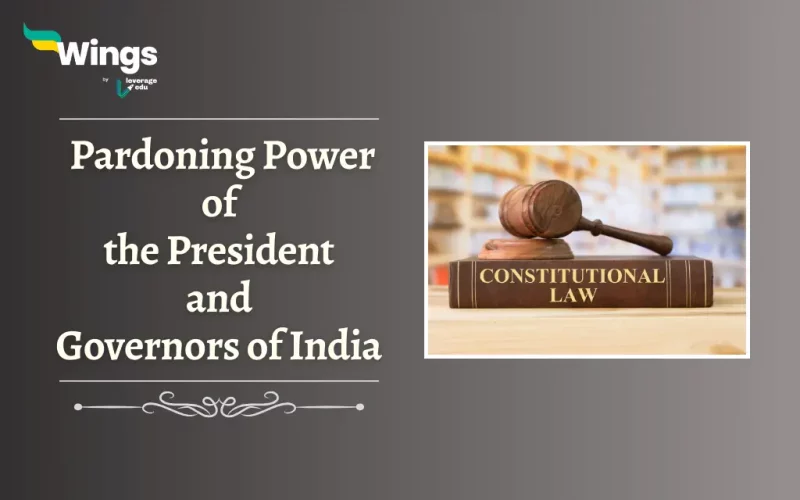In the Indian Constitution, the President of India and the Governor of a State both have the power of pardon. This power lets them grant relief to convicted people in particular circumstances. However, there are differences in how the Pardoning Power is used by the President and Governor. As per the Indian Constitution, Article 72 gives the President of India pardoning powers and Article 161 gives the Governor of a State. With this blog, you will also get to know in detail about the Pardoning Power of the President and Governor of India as well as the differences between their pardoning powers!
Pardoning Power of the President of India
Furthermore, Article 72 of the Indian Constitution gives the President of India the power to provide pardons in 3 circumstances:
- Punishment or sentence for an offence against a Union Law.
- Punishment or sentence by a court martial (military court).
- Sentence of death.
Additionally, the President’s power to grant pardons functions separately from the Indian Judiciary. In the use of this power, the President does not serve as an appellate court. Moreover, the main aims of this judicial power granted to the President are two-fold:
- To correct any potential judicial mistakes that might have arisen during the enforcement of the law.
- To offer respite from punishments deemed too severe.
Consequently, the President’s power to grant pardons includes these measures:
- Pardon: This action nullifies both the sentence and the conviction, hence absolving the person entirely from all penalties and disqualifications.
- Commutation: This involves replacing one form of punishment with a milder alternative. For instance, a death sentence may be commuted to rigorous imprisonment, which might then be commuted to simple imprisonment.
- Remission: Moreover, this includes reducing the duration of the sentence without changing its nature. For example, a sentence of rigorous imprisonment for 2 years might be remitted to one year of rigorous imprisonment.
- Respite: This pertains to giving a reduced sentence compared to the original one due to specific circumstances, such as the physical disability of a convict or the pregnancy of a female offender.
- Reprieve: This measure temporarily delays the execution of a sentence, particularly in cases involving death sentences. Therefore, its purpose is to provide the person with time to seek pardon or commutation from the President.
Also Read: What is 7th Schedule of Indian Constitution?
Pardoning Power of the Governor in India
According to Article 161 of the Constitution, the Governor of a State is vested with the authority to grant pardons, reprieves, respites, and remissions of punishment.
- Additionally, the Governor can also suspend, remit, and commute the sentences of people convicted of offences against State laws.
Also Read: How Many Governors are there in India?
Difference between the Pardoning Power of the President and Governor
However, there exist two distinct contrasts in the pardoning authority of a State Governor compared to that of the President of India:
- The President has the authority to pardon sentences issued by Court Martial (military courts), a power not held by the Governor.
- Additionally, the President possesses the ability to pardon death sentences, a power not granted to the Governor.
- Despite State laws permitting the death penalty, the power to grant pardon rests solely with the President rather than the Governor.
- Nevertheless, the Governor retains the ability to suspend, remit, or commute a death sentence.
- Essentially, both the Governor and the President share concurrent authority concerning the suspension, remission, and commutation of death sentences.
Related Blogs
Lastly, we hope you liked our blog and gained an understanding of the Pardoning Power of President and Governor. Moreover, you may even read more blogs and empower yourself with knowledge regarding Civics and Polity!
 One app for all your study abroad needs
One app for all your study abroad needs













